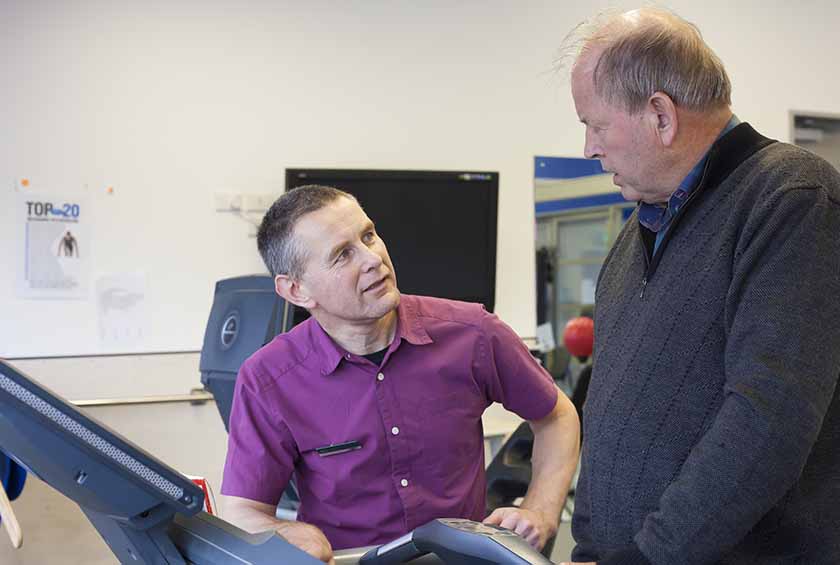Research over the last 10 years has revealed physical activity is associated with lower overall mortality for men diagnosed with prostate cancer¹, a reduction in the risk of colorectal-cancer and overall mortality in those diagnosed with stages one to three colorectal cancer², and the reduction of the risk of death from breast cancer³.
According to these studies, patients don’t need to go overboard, with either the duration or intensity of their exercise.
Oncologist Dr Daphne Tsoi from Oncology West says the degree of benefit for a small amount of exercise is so profound, it is often comparable to treating cancer with chemotherapy drugs.
“People with cancer can significantly improve their survival chances with just 30 minutes of walking per day, more if they are able,” says Dr Tsoi.
“Traditionally, we have always told patients to rest when they are ill, now, we are saying the exact opposite – get moving!”
To speed the recovery of her patients, Dr Tsoi signs them up for an exercise program specifically designed for cancer patients run by the Edith Cowan University Health and Wellness Institute.
Senior Research Fellow Dr Prue Cormie, from the Institute says she sees, firsthand, how exercise can impact the health of people with cancer.
“Exercise can have a huge impact on peoples’ lives by counteracting both the physical and mental effects of cancer treatment,” says Dr Cormie.
“It improves the structure and function of all the systems in the body, builds muscle and bone mass and helps to maintain a healthy weight.”
Exercise helps manage fatigue, relieve distress, decrease anaemia and improve immunity. It may also lower the risk or severity of lymphoedema.
If you would like to start an exercise program, ask your GP to refer you to the Exercise Management Program for the Treatment of Cancer at Edith Cowan University Health and Wellness Institute.
They have six exercise clinics throughout the Perth metropolitan area and can also design home-based exercise programs.
“A team of exercise physiologists who specialise in working with cancer patients will work with your doctor to tailor an exercise program to suit your specific needs,” says Dr Cormie.
“We recommend people with cancer should aim to achieve 2.5 hours of aerobic exercise and perform 2-3 sessions of resistance training each week for the best results.”
To get involved or for more information, please contact the Edith Cowan University Health and Wellness Institute team on:
Tel: (08) 6304 2329
Web: www.exercisemedicine.org.au
¹ Stacey A. Kenfield, Meir J. Stampfer, Edward Giovannucci, and June M. Chan. Physical Activity and Survival After Prostate Cancer, Diagnosis in the Health Professionals Follow-Up Study, Journal Of Clinical Oncology, Volume 29, Number 6, February 20, 2011.
² Jeffrey A. Meyerhardt, Edward L. Giovannucci, Michelle D. Holmes, Andrew T. Chan, Jennifer A. Chan, Graham A. Colditz, and Charles S. Fuchs. Physical Activity and Survival After Colorectal Cancer Diagnosis. Journal Of Clinical Oncology, Volume 24, Number 22, August 1, 2006.
³ Michelle D. Holmes, MD, DrPH, Wendy Y. Chen, MD, Diane Feskanich, ScD Candyce H. Kroenke, ScD and Graham A. Colditz, MD, DrPH. Physical Activity and Survival After Breast Cancer Diagnosis, Journal of the American Medical Association, Volume 293, Number 20, 25 May, 2005.

